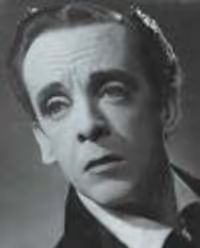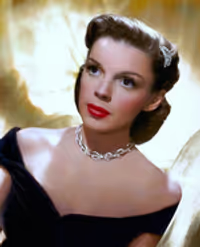CAMELOT Returns to Broadway - Reviews Thread
ElephantLoveMedley
Broadway Star Joined: 10/14/21
#650Sorkin and Sher to revive CAMELOT for Broadway
Posted: 4/13/23 at 1:38pm
I thought this was a really gorgeous production of a dreadfully boring show that frankly didn't need to get revived. The cast is genuinely exceptional (particularly Phillipa Soo who I found to be absolutely radiant), the design is lovely, but the show itself is just a snoozefest. I found myself thinking back to My Fair Lady, The King and I, and South Pacific often throughout the show and wondering why those three shows felt so thrilling and fresh compared to this stale piece. I left each of those productions feeling overwhelmed by their beauty and grandeur at the Beaumont, but I left this one almost entirely untouched. Thank God they did an A+ job with casting for this production, because if they didn't, it would be a truly horrible experience. This is really a great example of actors doing the heavy lifting in a show instead of the material.
#651Sorkin and Sher to revive CAMELOT for Broadway
Posted: 4/13/23 at 2:42pm
ElephantLoveMedley said: "I found myself thinking back toMy Fair Lady,The King and I, andSouth Pacificoften throughout the show and wondering why those three shows felt so thrilling and fresh compared to this stale piece."
I think it mostly has to do with the musical itself which many people find a bore but personally I also think it has to do with the fact that Bartlett Sher's interpretations of original Broadway books are smarter and more resonant than Aaron Sorkin's interpretation.
kylegfil_
Chorus Member Joined: 5/20/19
#652Sorkin and Sher to revive CAMELOT for Broadway
Posted: 4/13/23 at 2:48pm
I knew nothing about Camelot going in - I remember watching part of the movie when i was like 10 or 11 so I was familiar with a few of the musical motifs, as well as what happens with the love triangle. I expected a visually stunning, well-produced bore that would showcase about 60% of the talents of its stars.
Seems like my opinion is unpopular but I absolutely adored it. Again, I am not familiar with the original and perhaps that is a good thing. I thought all three leading actors were exceptional, particularly Soo and Burnap. It's a smart self-aware show and I thought it packed a very specific punch through holding a lot of cultural application to our exact moment in history. Particularly with Arthur's role, I thought the question of whether you support democratic ideals even when they happen to work against your personal interests and desires was very well explored. I thought Soo/Burnap had superb chemistry and looked forward to each of their scenes. The arc of their relationship is so tragic and there was a palpable ticking clock that begins the moment they meet onstage. I feel as though I watched them struggle to do the right thing, fail, try again, and fail again, confined by the limitations of their time. It was fascinating.
Jordan Donica's voice is beautiful and he is perhaps a little underutilized but I loved him.
Also thought the show was grand in terms of design where it needed to be, and intimate where it needed to be. It didn't feel minimalist for the sake of being so, but the story was not overwhelmed by any spectacle.
I'll definitely be going back.
#653Sorkin and Sher to revive CAMELOT for Broadway
Posted: 4/13/23 at 3:05pm
You are not alone. I enjoyed it myself and went into it, knowing almost nothing about it. The only thing that bothered me was how long the show is, as well as there is more dialogue than music. I thought it was a beautiful piece, don't get me wrong. People just need to prepare for the long showtime. The performances were just excellent! I hope Phillipa and Andrew get Tony nods for this show! I am sad I missed Jordan's Lancelot, but his understudy was magnificent! I mentioned this a few days ago, but because of where I was sitting up in the loge, I thought for a moment that Matiás was Kit Harrington! LOL! He does look like him, TBH! Even at the stage door, I, for a second, thought it was him again! I hope the show does well and that the critics don't destroy the Lerner & Lowe classic!
persephone88
Stand-by Joined: 12/30/14
#654Sorkin and Sher to revive CAMELOT for Broadway
Posted: 4/13/23 at 3:16pm
I agree with much of what ColortheHours048 said regarding the Sorkin rewrite. While I appreciated cutting the dreadful Nimue number, and I liked more given to Mordred's backstory, I find that many of his contributions detracted from the show for me - the modern verbiage, the need for characters to cut each other off with the little witticisms, and he is so very on the nose at times. From the moment we see Sirs Dinadan, Lionel and Sagramore when they first enter the stage, you go "Bad Knights!" :/ If one more person said "Things are changing TOO FAST around here..." We get it.
I will be an outlier and say that I was not crazy with Phillipa Soo's portrayal of Guinevere. She has a lovely voice, but she was so adversarial through most of the play, that by the end when she tells Arthur "I loved you from the moment I met you and you sang that silly song", I thought, "Really?" She spent much of the play glowering at him or distant from him. And I get that there is a divide there, but I never felt terribly sad when she fell in with Lancelot because I never got the impression that she liked Arthur very much throughout. I also did not really buy into the whole "We have a 'partnership'" dialogue that seemed to put her over the edge, along with the 11th hour Morgan Le Fay discovery of Arthur writing her letters. "What Do The Simple Folk Do?" should show the sad decline of their marriage, and frankly, it never felt like it had much to decline FROM as it pretty much dragged from the start. I am not sure if that was Sher's direction, Soo's interpretation of Guinevere, or what, but she just looked either angry or flat a lot of the time, other than the Lusty Month of May song when she really came to life.
I liked Andrew Burnap's Arthur very much, he has a fine voice, and I think he brought a boyish charm to the part as well as the regret at the end when he realizes that his marriage is over and his kingdom falling. However, Sorkin again has him say he blames himself and Jenny's father for forcing her into the marriage contract. If HE indeed forced that point, why then at the start of the show is he saying how much he is terrified to marry her and reluctant? Doesn't quite track.
Jordan Donica was a wonderful Lancelot. Terrific voice, and I did see the regret in his face, mannerisms, and gestures as he struggled with his devotion to Arthur vs his attraction to Jenny. I think he made for a great counterpoint to Andrew's Arthur, and you LIKED both of them, despite Lance's initial arrogance. He brought out the humility in Lancelot in several scenes. Particularly liked the fight scene choreography with the knights, though why have Arthur step in for Sir Sagramore? In the original, doesn't Lance actually seem to bring Sagramore back from the dead through his pious prayers? In this, Arthur seems to turn it into a joke - "I was UNCONSCIOUS!" which undercuts Lancelot's "miracle" which brings so many over to his side.
I thought Dakin Mathews did a good job with Merlin / Sagramore, and Taylor Trensch was a strong Mordred (and I thought he did a great job of playing that part younger than Arthur). The orchestrations were gorgeous and I enjoyed the use of lighting effects from the snow to the thorns growing around Morgan's house. The scenery they did use was lovely, but I agree that the stage looked too empty and vast at times - a larger chorus and a few more set pieces would have helped a lot.
Overall this was a mixed bag for me, which was the same reaction I had to Sorkin and Sher's "To Kill A Mockingbird" - I felt that a few of the updates in that (like the expansion of Dill's character) were wonderful, but a good bit of the updated dialogue fell flat and some of the characterizations did not seem true to the original material. I felt the same here. That despite the gorgeous music, the strong cast, the moving story, that some of the revisions were overdone. I wanted to love it, but came away only liking a lot of it, and I am feeling like it was the production team more than the actors and musicians that let me down a bit.
Dollypop
Broadway Legend Joined: 5/15/03
#655Sorkin and Sher to revive CAMELOT for Broadway
Posted: 4/13/23 at 4:11pm
CarlosAlberto said: "Highland Guy said: "The 1967 film version of "Camelot" will be shown on Turner Classic Movies (TCM) this Sunday, April 16th.
""
#656Sorkin and Sher to revive CAMELOT for Broadway
Posted: 4/13/23 at 4:20pm
ColorTheHours048 said: "I think my biggest problem with the staging was that the actors just looked so lost up there. It either needed about 5 more ensemble members, or less depth to the stage. Moments like “The Lusty Month of May” should feel like a sudden awakening of not just the show, but of the stage as a whole. The Maypole comes down and after a brief dance around it, everyone mostly sticks to the lip of the stage and there’s just a big cavernous nothing - so that when the dancing and merriment starts, it all feels small.
Similarly, when Guinevere tells Arthur to pace, he’s got ALLLLLLLLL this space, but he just walks in circles around a tiny area carpet. There’s no sense of the depth and breadth of the Beaumont stage, only that it’s there. But it eats all the tension up.
I kept thinking of The Light in the Piazza, the moment when we’re left with just a scrim, no more set pieces, and Clara runs from upstage all the way downstage, and we get the full picture of just how large this stage was all along. Or South Pacific, when all of the soldiers marched up to the beach. Or Anna and the King waltzing through the entirety of the space. The closest we get here is Arthur and Guinevere walking out in their capes for the knighting of Lancelot, and it’s like “That’s all we get? Flowy capes?”
I don’t need big sets, but if you’re directing a show in the Beaumont, you’ve got some big shoes to fill. Literally. And with this production of Camelot, it feels a size too big."
As I said earlier I noticed that as well but it was the first week. There was also vast separation between actors which I assumed was purpose-full. There was a fair amount of circular movements that at times felt directed. I think the reviews will be positive. I am not sure they will be raves because the book is clunky.
I wondered about the lights being bumped up in the initial scenes to give the scene work more life. Perhaps they took place in the evening and that is why they were darker….
#657Sorkin and Sher to revive CAMELOT for Broadway
Posted: 4/13/23 at 7:26pm
Very curious how things will play out with reviews.
pollster2
Stand-by Joined: 4/25/17
#658Sorkin and Sher to revive CAMELOT for Broadway
Posted: 4/13/23 at 8:40pm
I saw Camelot a week or so ago and was not particularly familiar with it. I knew it was a Golden Age show with a love triangle and a few classic standards. Beyond that -- nothing. While this production is long, I found it to be thrilling. Soo and Burnap are giving sensational performances. Burnap's transformation from a reluctant king to a leader was sensational. From start to finish, Soo had me entranced. Donica was very good but I did not find him to be quite on the same level as Soo or Burnap. I loved Dakin Matthews and hope he is remembered during awards season. I loathed Taylor Trensch but I am not sure if it is because of his character or his acting. Either way, I never believed that Mordred was a legitimate villain. The set is obviously quite minimal, but I thought it worked splendidly. The show is not about magic or Merlin -- it's about love, duty, and integrity -- to me, that is what makes it magical. I thought this production achieved that in spades. I hope it gets great reviews.
#659Sorkin and Sher to revive CAMELOT for Broadway
Posted: 4/13/23 at 9:05pm
Review: A Lusty Camelot, With Shades of The West Wing, From Aaron Sorkin
Sorkin rewrites Lerner and Loewe’s oft-derided musical for a sumptuous production at Lincoln Center Theater.
https://www.theatermania.com/news/review-a-lusty-camelot-with-shades-of-the-west-wing-from-aaron-sorkin_1698073/
#660Sorkin and Sher to revive CAMELOT for Broadway
Posted: 4/13/23 at 9:14pm
https://www.nytimes.com/2023/04/12/t-magazine/phillipa-soo-camelot-broadway.html
Phillips Soo on CAMELOT and her favorite pop song
#661Sorkin and Sher to revive CAMELOT for Broadway
Posted: 4/13/23 at 9:20pm
https://www.amny.com/entertainment/theater/cracks-in-the-round-table-at-camelot/
CRACKS IN THE ROUND TABLE
And the Tony Award for biggest disappointment (both literally and figuratively) of the theater season goes to Lincoln Center Theater’s highly-anticipated Broadway revival of Lerner & Loewe’s “Camelot,” the beloved but lumbering 1960 musical which, although admittedly in need of a facelift, has not benefited from Aaron Sorkin’s revised book.
#662Sorkin and Sher to revive CAMELOT for Broadway
Posted: 4/13/23 at 9:25pm
https://nystagereview.com/2023/04/13/camelot-revival-offers-one-and-only-one-brief-shining-moment/
CAMELOT: REVIVAL OFFERS ONE, AND ONLY ONE, BRIEF SHINING MOMENT
By Steven Suskin
★★☆☆☆ The Lerner & Loewe musical is unable to live up to its reputation in this Sher & Sorkin revision
Now comes Lerner and Loewe’s Camelot, which alas cannot hold a candle to My Fair Lady. Director Sher has called in Aaron Sorkin, that man for all seasons, to try to fix the book. Lyricist/librettist Alan Jay Lerner spent a fair amount of time trying to fix it himself; this proved impossible, as the intertwined love stories he concocted are never, either of them, altogether convincing. One doesn’t begrudge the folks at Lincoln Center, nor the authors’ estates, from handing it over to the man from The West Wing. But Sorkin runs into the same problem Lerner did, and without new songs to go with the new characterizations, Camelot remains as disjointed as before.
#663Sorkin and Sher to revive CAMELOT for Broadway
Posted: 4/13/23 at 9:26pm
https://nystagereview.com/2023/04/13/camelot-lerner-loewe-revisal-not-charismatic-spot/
CAMELOT: LERNER-LOEWE REVISAL NOT CHARISMATIC SPOT
By David Finkle
★★☆☆☆ Aaron Sorkin revamps, Bartett Sher directs the beloved musical
Result? His story lacks magic. Arthur (Andrew Burnap) is a pleasant enough young bloke who has (democratic?) notions of a unifying (never seen) round table. He meets his not cute but cold, arranged French bride Guenevere (Phillipa Soo) in a setting that designer Michael Yeargan envisions as, with its lone leafless tree, something like Samuel Beckett’s barren Waiting for Godot plain.
#664Sorkin and Sher to revive CAMELOT for Broadway
Posted: 4/13/23 at 9:31pm
The Gleaming Promise of CAMELOT — Review
But lo! Another feudal twink enters the court: Arthur’s secret son, Mordred (Taylor Trensch), from the King’s long-ago encounter with the spooky scientist Morgan Le Fey (Marilee Talkington). The devious offspring sets off a series of improbably intricate events to sow chaos in the kingdom by activating the resentments of the rest of the round table’s knights.
Soo’s performance is a golden highlight of the entire season. Her voice can be muscular, featherlight, torrential or lilting, as is needed, and her royal comportment carries the same exasperated whimsy as Julie Andrews, the role’s originator. A tableau towards the end of the first act in which she looks over her decollété shoulder, away from Lancelot, is the stuff of Sargent paintings. And, though Jennifer Moeller’s costumes are all-around terrific, hers are designed and fitted so gorgeously, to the point where I half-expected a “Miss Soo’s Gowns By” credit at the end, like an old Grace Kelly movie.
https://www.theatrely.com/post/the-gleaming-promise-of-camelot-review
#665Sorkin and Sher to revive CAMELOT for Broadway
Posted: 4/13/23 at 9:31pm
‘Camelot’ Broadway Review: Aaron Sorkin Leaves The Magic To His Cast
https://deadline.com/2023/04/camelot-broadway-review-aaron-sorkin-phillipa-soo-lincoln-center-theater-1235323423/
What’s a Camelot without a little magic?
Aaron Sorkin works up an answer to that question in the new Lincoln Center Theater production of the 1960 Lerner & Loewe musical, and the result is an adaptation that seems at every turn to be pleading its case for its own relevance. Where the West Wingcreator conjured a real sort of writerly sorcery in 2018 with his transformation of the beloved property To Kill A Mockingbird into a new, relevant and thrilling stage work, his efforts this time around often seem strained in their attempts to drag Camelot into the 21st Century.
#666Sorkin and Sher to revive CAMELOT for Broadway
Posted: 4/13/23 at 9:32pm
Review: In a Sorkinized ‘Camelot,’ That’s How Conditions Are. Alas.
A revival of the 1960 musical with the famously great score and infamously bad book gets a gorgeous makeover that makes no difference.
https://www.nytimes.com/2023/04/13/theater/review-camelot.html
#667Sorkin and Sher to revive CAMELOT for Broadway
Posted: 4/13/23 at 10:04pm
Extended through September 3. Unfortunately, with these reviews, that will probably be its closing date.
Updated On: 4/13/23 at 10:04 PM#668Sorkin and Sher to revive CAMELOT for Broadway
Posted: 4/13/23 at 10:08pm
Kudos to the Times for calling out the weakness of the score. Yes, it made a lovely cast album. But it never really engages with the political themes. And while the leads sing charm songs and ballads a plenty, they don't convincingly make the jump from musical comedy youths to tragic, psychologically complex adults after intermission. Why does Guenevere love Lancelot? How does she feel about Arthur? How many weather metaphors can one show hold?
#669Sorkin and Sher to revive CAMELOT for Broadway
Posted: 4/13/23 at 10:22pm
Chris Jones's comments about Camelot's heterosexuality ignore that the work has always had a queer element. Roddy Mcdowell was the first Mordred. And Richard Harris made film Arthur a big ole fop.
"fear of the narrative dominance of a handsome, confident, heterosexual male, which means that Donica gets heavy eyeliner and Burnap, for all his talent, comes off as a less-than-effectual wimp half the time;"
BROADWAY REVIEW: A chilly Lincoln Center ‘Camelot,’ shorn of love, sex and belief – New York Daily News (nydailynews.com)
#670Sorkin and Sher to revive CAMELOT for Broadway
Posted: 4/13/23 at 11:41pm
Woah... These reviews are extremely mixed/divisive to say the least. Honestly, I agree that the Tony race is between Sweeney Todd and Parade at this point. I'm still seeing it in June to form my own opinion of it, but the reviews are keeping expectations in check.
Videos








